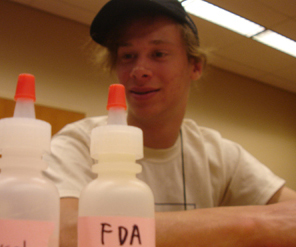About the CBIs

Six Capacity Building Institutes (CBIs) took place at the University of Washington (UW) in Seattle, Seattle Central Community College (SCCC), and Bellevue College (BC). Three practitioner-focused CBIs were tailored to faculty, staff, and service providers. Three student CBIs were tailored to postsecondary students with disabilities. The purpose of these CBIs was to explore ways to increase the participation of students with disabilities in science, technology, engineering, and mathematics (STEM) at three participating institutions. These six CBIs further explored issues discussed in an earlier CBI in which the three postsecondary schools collaborated with representatives from Seattle Public Schools; the proceedings document for this CBI is located here.
These activities were coordinated by the DO-IT (Disabilities, Opportunities, Internetworking, and Technology) Center at the UW in Seattle as part of its Alliance for Students with Disabilities in Science, Technology, Engineering, and Mathematics (AccessSTEM) project. AccessSTEM is funded by the National Science Foundation (grant # HRD-0833504) through the Research in Disabilities Education Program within the Division of Human Resources Development. Partners in AccessSTEM are the UW, SCCC, BC, and Seattle Public Schools (SPS).
Results of the CBIs are being used by AccessSTEM staff and partners to fine-tune activities supported by the project. Suggestions and feedback from multiple stakeholder groups are routinely sought in order to maximize project outcomes and impact. The CBI proceedings may be useful to others who wish to design programs to promote the success of students with disabilities in college studies in STEM. Guidance for conducting your own CBI can be found in the DO-IT publication Building Capacity for a Welcoming and Accessible Postsecondary Institution at Event Proceedings.
The following pages include a sample agenda, a description of participants, a summary of participant responses to CBI questions, and information on how interested parties can further engage with AccessSTEM on these topics.